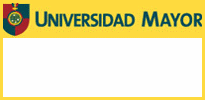Venezuela: Venezuela Education Profile 2012
2012/04/06
Venezuela Education Profile 2012
Education is one of the government’s main concerns. It received special attention in the social assistance scheme with five “missions” dedicated to this policy area. Just as in the health sector, the money poured into the missions helped many beneficiaries of direct transfers overcome hardships, but general impact assessment on educational institutions remains difficult. The formal education system has received insufficient attention. Teachers complain about low pay and high workloads, deficient physical conditions of schools, and lack of resources. The government plans to impose a “Bolivarian curriculum” that interprets the world, the country and history from a single perspective. The plan has been criticized as a blueprint for brainwashing. The adult literacy rate is about 94%, net primary enrollment rose to 91% and net secondary enrollment to 63%, while about 91% of children reach the fifth grade.
R&D got a boost through the Science and Technology Law, which gives businesses tax allowances as long as they finance research and technology projects in-company or at universities. Venezuela spent about 0.35% of GDP on R&D through 2006, when the methodology of measuring was changed and, according to official sources, spending soared to 1.78% of GDP. Even so, the outcome is rather sobering, as the country has only 0.38 researchers per 1,000 labor force, against the Latin American average of 1.58. The number of scientific publications fell from 12 per $1 billion GDP when Chavez came to power, to a meager six in 2006, compared with a Latin American average of 14. Taking into account the immense resources that flooded the state’s coffers – over $850 billion in ten years – the outcome is indeed poor, even in Chavez’s own terms. When he took office in 1999, he complained that the previous administrations that had wasted the equivalent of 15 Marshall Plans in forty years without putting the country on a development path. By these standards, his failure is exponentially bigger. Chavez has overseen the spending of more than 50 Marshall Plans in only ten years without having managed to make the country climb on the Human Development Index scale.
- Venezuela News
-
- VENEZUELA: State of emergency declared in Venezuela to counter "US and domestic threats"
- VENEZUELA: Venezuela's socialists threaten opposition's landmark majority
- VENEZUELA: Opposition ends decades of socialist rule in Venezuela
- AFGHANISTAN: Global growth will be disappointing in 2016: IMF's Lagarde
- VENEZUELA: Assessing Venezuela’s Elections: The Good, the Bad, and the Indifferent
- GUYANA: Mexico ready to purchase Guyana rice following Venezuela's refusal to renew exchange accord
- Trending Articles
-
- CHINA: Forty-six Chinese-owned companies registered in Guinea-Bissau
- AUSTRALIA: Australia election: Over 15 million voters likely to exercise their franchise
- SOUTH AFRICA: South Africa’s Biggest Labor Group to Balance Pay With Job Security
- ISRAEL: Israeli PM to embark on historic Africa visit boosting diplomatic, economic ties
- MALAWI: This $6 a month solar energy plan could power a million homes in Africa by 2017
- NIGERIA: Lagos hosts 2016 Africa fashion week Nigeria










